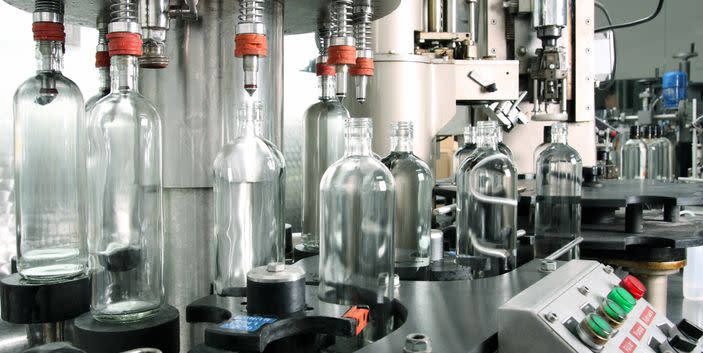Distilleries Around the Country Are Now Making Hand Sanitizer

As social distancing and quarantine measures continue in the wake of the COVID-19 outbreak, spirits distilleries around the U.S. are pitching in in their own way by altering their production lines to focus on the manufacture of hand sanitizer.
Since concerns about the spread of the coronavirus began to rise several weeks ago, germ-killing hand sanitizer has become a hot commodity for on-the-go cleansing, with shortages reported around the nation. In response to the persistent need, the Alcohol and Tobacco Tax and Trade Bureau announced last week that it would waive certain provisions around distilled spirits regulations to allow distilleries that typically produce drinking alcohol to pivot to the production of ethanol-based hand sanitizers. The response has been resounding, with big industry names and local craft distilleries alike stepping up to create their own versions.
Pernod Ricard, which owns global brands including Absolut Vodka and Jameson Irish Whiskey, has pledged to convert facilities in Arkansas, West Virginia, Texas, and Kentucky to the production of hand sanitizer. Similarly, Bacardi Rum, in partnership with Puerto Rico-based manufacturer Olein Refinery, has begun distributing a hand sanitizer made to USPS workers, firefighters and police in their local communities with plans to expand their production to more than 1.7 million 10-ounce bottles of sanitizer. Texas-based vodka brand Tito's announced on Sunday that they were ironing out the details on producing and distributing 24 tons of hand sanitizer for donation.
While we advise that you cannot use our vodka as a hand sanitizer, our distillery has been working hard to get all of the pieces in place to begin production on 24 tons of hand sanitizer that adheres to industry and governmental guidance. Please see attached for more information. pic.twitter.com/c5pTzVOvv1
— TitosVodka (@TitosVodka) March 22, 2020
Local spirits producers are also working to provide for their communities, including Whiskey Ranch in Ft. Worth, Texas, Lexington Brewing & Distilling Co. in Kentucky, Burdett, New York's Finger Lake Distilling, Koval Distillery in Chicago, and Bendt Distilling Co. in Lewisville, Texas.
Rochester, New York-based Black Button Distilling switched their operations to producing hand sanitizer just as they were preparing to shut down production following the statewide order to stop functions of non-essential businesses. "On Monday morning the FDA guidance for producing ethanol based hand sanitizer had come out and I knew that we could do it," says Black Button Distilling President and Head Distiller Jason Barrett. "By Friday we had delivered 4,300 bottles and exhausted our initial supply of ingredients. All week and through the weekend we sourced more ingredients and better packaging ... we hope to bottle 30,000 bottles in the next 5-8 days."
In order to shift production to hand sanitizer, distillers have to denature the ethanol they would otherwise have used to make spirits, a process that makes the alcohol undrinkable. It is then blended with hydrogen peroxide and glycerin according to a recipe provided by the FDA, according to Barrett. "Actually mixing and bottling the product is very straightforward for us as we do similar things daily," he says.
A post shared by Black Button Distilling (@blackbuttondistilling) on Mar 22, 2020 at 9:14am PDT
However, not every step of changing an operation designed with consumable spirits in mind to one for hand sanitizer is straightforward.
"The first 5,000 bottles we made with the alcohol we had in our warehouse and had intended to make our Lilac Gin with," Barrett explains. "For the larger production run we have sourced USP-grade ethanol for further production. While we make ethanol onsite, our stills can't make pure ethanol fast enough to make this work. We make 1,000 bottles a day of vodka or gin, with a three week lead time and this hand sanitizer is basically two bottles worth of ethanol in each." The strength of hand sanitizer also poses a problem. "Our high-speed line can't handle material of this potency so we're using all our manual lines," says Barrett.
Nonetheless, distillers like Black Button Distilling are doing their best to keep up with demand from both commercial and private sectors to make hand sanitizer more available for those in need.
You Might Also Like

